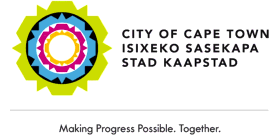Cape Town's Record Tourism Surge Ignites Fierce Urban Access Debate

Cape Town is currently navigating its most intense tourism season to date, marked by an unprecedented cruise season and a packed schedule of major events. This tourism boom, while economically beneficial, has ignited significant tensions between city officials and local residents who are increasingly vocal about the detrimental impact on traffic, accessibility, and their daily lives.
The strain is particularly evident on key arterial roads such as Kgosana Drive and Victoria Road, which frequently experience severe gridlock. This congestion is exacerbated when large-scale events coincide with the arrival of cruise ships at the city’s busy port. Resident Peter Smulik articulated widespread frustration in a recent letter to local media, detailing “almost weekly disruption” caused by a diverse range of events, from marathons and music festivals to the constant shuttling of tour coaches from the cruise terminal. Smulik highlighted the severe traffic snarls that occur when luxury liners like the Queen Anne berth in Cape Town, noting the increasing difficulty for Capetonians to navigate city streets as thousands of cruise guests are transported between the Cruise Terminal, V& A Waterfront, and Table Mountain. He posits that while the city accrues profits from event permits and visitor spending, it is the residents and commuters who bear the brunt of delays, congestion, and increased fuel costs. Smulik advocates for a more restrained events calendar, suggesting Cape Town should limit itself to traditional mainstays like the Two Oceans Marathon and Cape Town Cycle Tour, and minimize the number of “huge events” to safeguard residents' quality of life.
In response, JP Smith, Mayco Member for Safety and Security, staunchly defends Cape Town’s event-driven economic model. He emphasizes that over 40,000 residents rely on event-related employment, and that just seven major sporting events inject more than R5 billion into the local economy. Smith argues that “calls to restrict the number of events to one per month would have far-reaching economic and social consequences,” asserting that “events are woven into the social and economic fabric of Cape Town.” While acknowledging the inconvenience of temporary road closures, he insists that comprehensive traffic management plans are always in effect and that “the benefits far outweigh the short-term impacts.”
The city's port area has become a central point for these mounting pressures. With the 2025/26 cruise season fully underway, Kloof Nek and Tafelberg Roads are routinely filled with convoys of coaches transporting cruise passengers to popular attractions. Local tourism operators, while recognizing congestion as a persistent challenge, view it as an inevitable outcome of Cape Town’s success as Africa’s leading event and cruise hub. One operator commented that while
You may also like...
If Gender Is a Social Construct, Who Built It And Why Are We Still Living Inside It?

If gender is a social construct, who built it—and why does it still shape our lives? This deep dive explores power, colo...
Be Honest: Are You Actually Funny or Just Loud? Find Your Humour Type

Are you actually funny or just loud? Discover your humour type—from sarcastic to accidental comedian—and learn how your ...
Ndidi's Besiktas Revelation: Why He Chose Turkey Over Man Utd Dreams

Super Eagles midfielder Wilfred Ndidi explained his decision to join Besiktas, citing the club's appealing project, stro...
Tom Hardy Returns! Venom Roars Back to the Big Screen in New Movie!

Two years after its last cinematic outing, Venom is set to return in an animated feature film from Sony Pictures Animati...
Marvel Shakes Up Spider-Verse with Nicolas Cage's Groundbreaking New Series!

Nicolas Cage is set to star as Ben Reilly in the upcoming live-action 'Spider-Noir' series on Prime Video, moving beyond...
Bad Bunny's 'DtMF' Dominates Hot 100 with Chart-Topping Power!

A recent 'Ask Billboard' mailbag delves into Hot 100 chart specifics, featuring Bad Bunny's "DtMF" and Ella Langley's "C...
Shakira Stuns Mexico City with Massive Free Concert Announcement!

Shakira is set to conclude her historic Mexican tour trek with a free concert at Mexico City's iconic Zócalo on March 1,...
Glen Powell Reveals His Unexpected Favorite Christopher Nolan Film

A24's dark comedy "How to Make a Killing" is hitting theaters, starring Glen Powell, Topher Grace, and Jessica Henwick. ...


